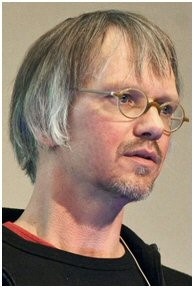Eco-evolutionary dynamics and community ecology

Luc De Meester
KU Leuven, Belgium, Luc.DeMeester@bio.kuleuven.be
Ecological and evolutionary processes have largely been studied separately, yet there is growing evidence that ecological and evolutionary dynamics can occur at the same time scale and can strongly interact. Ignoring these interactions may distort our view of population, community and ecosystem responses to environmental change. This may be especially important in relation to human-induced changes, as these often create novel habitats and strong selection pressures. The evolving metacommunities framework tries to disentangle the relative importance of species and genotype sorting in determining community trait responses to environmental gradients, both locally and regionally. I will present evidence of rapid genetic adaptation to multiple environmental changes in the water flea Daphnia and will present proof-of-concept experiments showing how evolution may indeed affect community composition of cladoceran zooplankton. Finally, I will present some challenges and perspectives for future work.
(talk in English)
Recent publications:
Geerts, A.N., J. Vanoverbeke, B. Vanschoenwinkel, W. Van Doorslaer, H. Feuchtmayr, D. Atkinson, B. Moss, T.A. Davidson, C.D. Sayer & L. De Meester, 2015. Rapid evolution of thermal tolerance in the water flea Daphnia. Nature Climate Change 5: 666-668.
Jansen, M., A. Coors, J. Vanoverbeke, M. Schepens, P. De Voogt, K.A.C. De Schamphelaere & L. De Meester, 2015. Experimental evolution reveals high insecticide tolerance in Daphnia inhabiting farmland ponds. Evolutionary Application 8: 442-453. 668
Pantel, J.H., C. Duvivier & L. De Meester, 2015. Rapid local adaptation mediates zooplankton community assembly in experimental mesocosms. Ecology Letters 18: 992-1000
Christoph Haag: Christoph.HAAG@cefe.cnrs.fr
Contact du Comité SEEM: seem@services.cnrs.fr. Contact du Labex CEMEB: gestion.cemeb@univ-montp2.fr, www.labex-cemeb.org.


